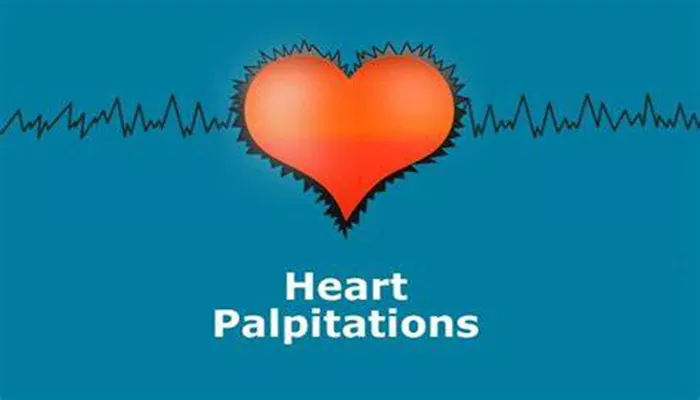Intermittent palpitations are sensations of an irregular or rapid heartbeat that can be alarming to those who experience them. While often benign, these episodes can sometimes indicate underlying health issues that require attention. This article delves into the various causes of intermittent palpitations, exploring both cardiac and non-cardiac origins, and providing a comprehensive understanding for patients and healthcare providers alike.
What Are Palpitations?
Palpitations are defined as the awareness of heartbeats that may feel rapid, fluttering, pounding, or irregular. They can occur during physical activity or at rest and may last for a few seconds to several minutes. The sensation can be localized in the chest, throat, or neck, and while many individuals may dismiss them as harmless, they can also be indicative of more serious health concerns.
Common Causes of Intermittent Palpitations
1. Cardiac Causes
The most prevalent causes of palpitations stem from cardiac conditions. These include:
Arrhythmias: Abnormal heart rhythms are the primary culprits behind palpitations. Types of arrhythmias include:
Atrial Fibrillation (AF): A common arrhythmia characterized by rapid and irregular beating of the atrial chambers.
Supraventricular Tachycardia (SVT): Episodes of abnormally fast heart rate originating above the heart’s ventricles.
Premature Ventricular Contractions (PVCs): Extra heartbeats that disrupt the regular rhythm.
Bradyarrhythmias: Slow heart rates that may lead to palpitations due to inadequate blood flow.
Structural Heart Diseases: Conditions such as cardiomyopathy (disease of the heart muscle), valvular heart disease, and congenital heart defects can cause palpitations due to compromised blood flow or abnormal electrical conduction.
High Output States: Situations like anemia, hyperthyroidism, or pregnancy can increase the heart’s workload, leading to palpitations.
2. Non-Cardiac Causes
Not all palpitations are related to heart conditions. Several non-cardiac factors can contribute to their occurrence:
Psychiatric Disorders: Anxiety and panic attacks are significant contributors to palpitations. Stressful situations can trigger the release of adrenaline, which accelerates the heart rate.
Stimulants: Caffeine, nicotine, and certain medications (like decongestants) can provoke palpitations by stimulating the nervous system.
Hormonal Changes: Fluctuations in hormones during menstruation, pregnancy, or menopause can lead to increased awareness of heartbeats.
Dietary Factors: Low blood sugar levels, dehydration, and electrolyte imbalances can also cause palpitations. For instance, a sudden drop in blood sugar may trigger a release of stress hormones that elevate heart rate.
Substance Use: Recreational drugs such as cocaine and amphetamines are known to induce palpitations due to their stimulating effects on the cardiovascular system.
3. Other Medical Conditions
Several medical conditions can lead to intermittent palpitations:
Thyroid Disorders: An overactive thyroid (hyperthyroidism) increases metabolism and heart rate, often resulting in palpitations.
Fever: Elevated body temperature can increase metabolic demands on the body, leading to a faster heartbeat.
Sleep Apnea: This condition can disrupt normal breathing patterns during sleep and may lead to intermittent palpitations due to oxygen deprivation.
Diagnostic Approach
When evaluating intermittent palpitations, healthcare providers typically conduct a thorough assessment that includes:
Medical History: Understanding the patient’s history is crucial.
Questions about the frequency, duration, triggers, and associated symptoms (such as chest pain or shortness of breath) help in identifying potential causes.
Physical Examination: A physical exam may reveal signs of underlying conditions such as thyroid enlargement or abnormal heart sounds.
Electrocardiogram (ECG): An ECG records the electrical activity of the heart and is essential for diagnosing arrhythmias.
Continuous monitoring with a Holter monitor or event recorder may be necessary for patients with infrequent symptoms.
Blood Tests: These tests help assess thyroid function, electrolyte levels, and other markers that could contribute to palpitations.
When to Seek Medical Attention
While many cases of intermittent palpitations are harmless, certain symptoms warrant immediate medical evaluation:
Palpitations accompanied by chest pain or discomfort
Severe shortness of breath
Dizziness or fainting spells
Rapid heartbeat persisting for an extended period
These symptoms could indicate serious conditions such as arrhythmias or other cardiovascular issues requiring urgent intervention.
Management Strategies
The management of intermittent palpitations depends on their underlying cause:
Lifestyle Modifications: Reducing caffeine intake, avoiding stimulants like nicotine and recreational drugs, managing stress through relaxation techniques, and maintaining a healthy diet can significantly alleviate symptoms.
Medication Adjustments: If medications are identified as triggers for palpitations, healthcare providers may consider alternatives or dosage adjustments.
Treating Underlying Conditions: Addressing any underlying health issues—such as hyperthyroidism or anxiety disorders—can help resolve symptoms. For example:
Antithyroid medications or beta-blockers may be prescribed for hyperthyroidism.
Anti-anxiety medications may be indicated for anxiety-related palpitations.
Cardiac Procedures: In cases where arrhythmias are diagnosed as the cause of persistent palpitations, procedures such as catheter ablation or implantable cardioverter-defibrillator (ICD) placement may be necessary.
Conclusion
Intermittent palpitations are a common experience for many individuals and often arise from both cardiac and non-cardiac causes. Understanding these triggers is essential for effective management. While most cases are benign and manageable through lifestyle changes and medical treatment when necessary, it is crucial for individuals experiencing frequent or concerning symptoms to seek medical advice.
Related topics:


